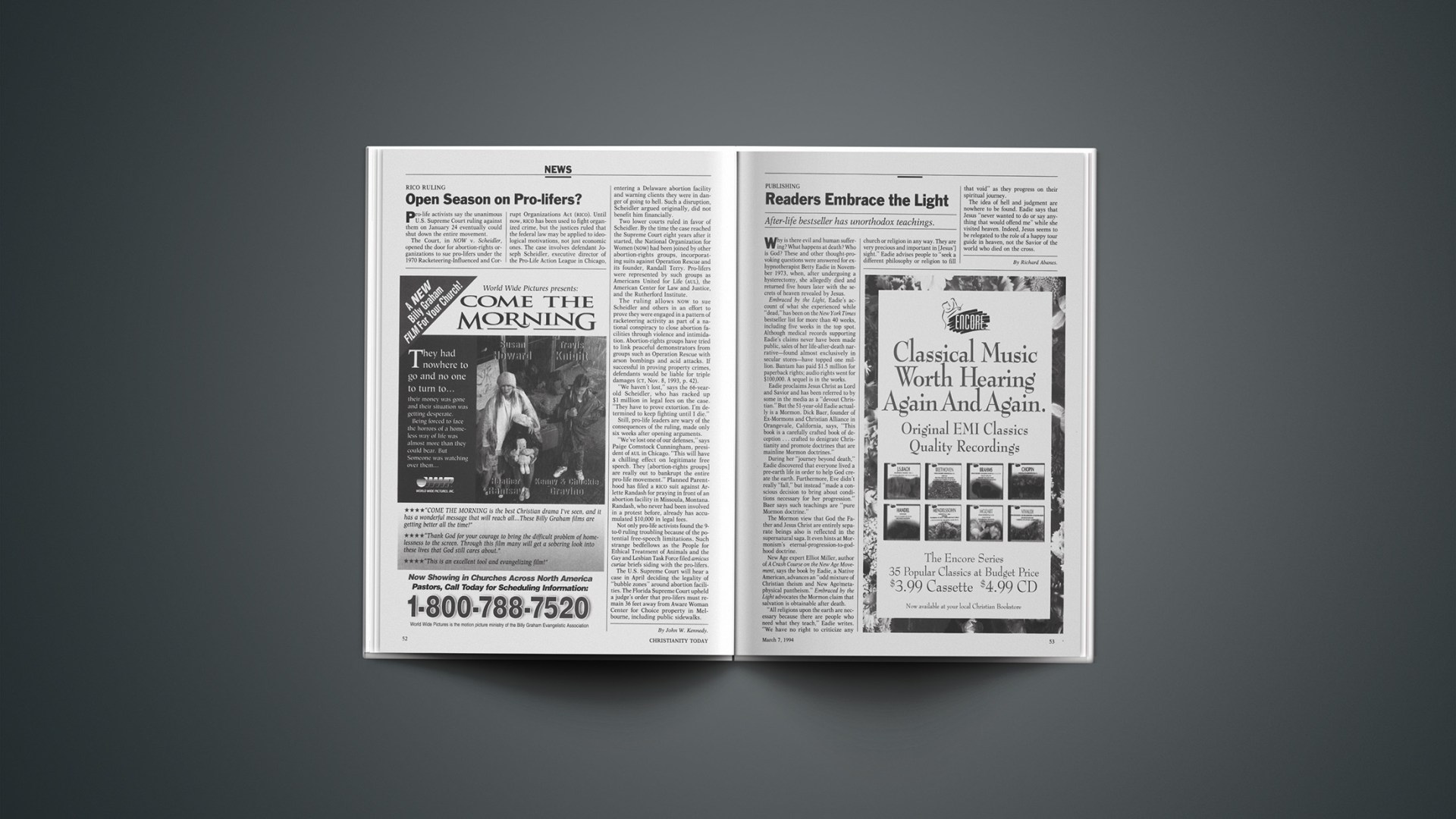After-life bestseller has unorthodox teachings.
Why is there evil and human suffering? What happens at death? Who is God? These and other thought-provoking questions were answered for ex-hypnotherapist Betty Eadie in November 1973, when, after undergoing a hysterectomy, she allegedly died and returned five hours later with the secrets of heaven revealed by Jesus.
Embraced by the Light, Eadie’s account of what she experienced while “dead,” has been on the New York Times bestseller list for more than 40 weeks, including five weeks in the top spot. Although medical records supporting Eadie’s claims never have been made public, sales of her life-after-death narrative—found almost exclusively in secular stores—have topped one million. Bantam has paid $1.5 million for paperback rights; audio rights went for $100,000. A sequel is in the works.
Eadie proclaims Jesus Christ as Lord and Savior and has been referred to by some in the media as a “devout Christian.” But the 51-year-old Eadie actually is a Mormon. Dick Baer, founder of Ex-Mormons and Christian Alliance in Orangevale, California, says, “This book is a carefully crafted book of deception … crafted to denigrate Christianity and promote doctrines that are mainline Mormon doctrines.”
During her “journey beyond death,” Eadie discovered that everyone lived a pre-earth life in order to help God create the earth. Furthermore, Eve didn’t really “fall,” but instead “made a conscious decision to bring about conditions necessary for her progression.” Baer says such teachings are “pure Mormon doctrine.”
The Mormon view that God the Father and Jesus Christ are entirely separate beings also is reflected in the supernatural saga. It even hints at Mormonism’s eternal-progression-to-godhood doctrine.
New Age expert Elliot Miller, author of A Crash Course on the New Age Movement, says the book by Eadie, a Native American, advances an “odd mixture of Christian theism and New Age/metaphysical pantheism.” Embraced by the Light advocates the Mormon claim that salvation is obtainable after death.
“All religions upon the earth are necessary because there are people who need what they teach,” Eadie writes. “We have no right to criticize any church or religion in any way. They are very precious and important in [Jesus’] sight.” Eadie advises people to “seek a different philosophy or religion to fill that void” as they progress on their spiritual journey.
The idea of hell and judgment are nowhere to be found. Eadie says that Jesus “never wanted to do or say anything that would offend me” while she visited heaven. Indeed, Jesus seems to be relegated to the role of a happy tour guide in heaven, not the Savior of the world who died on the cross.
By Richard Abanes.










